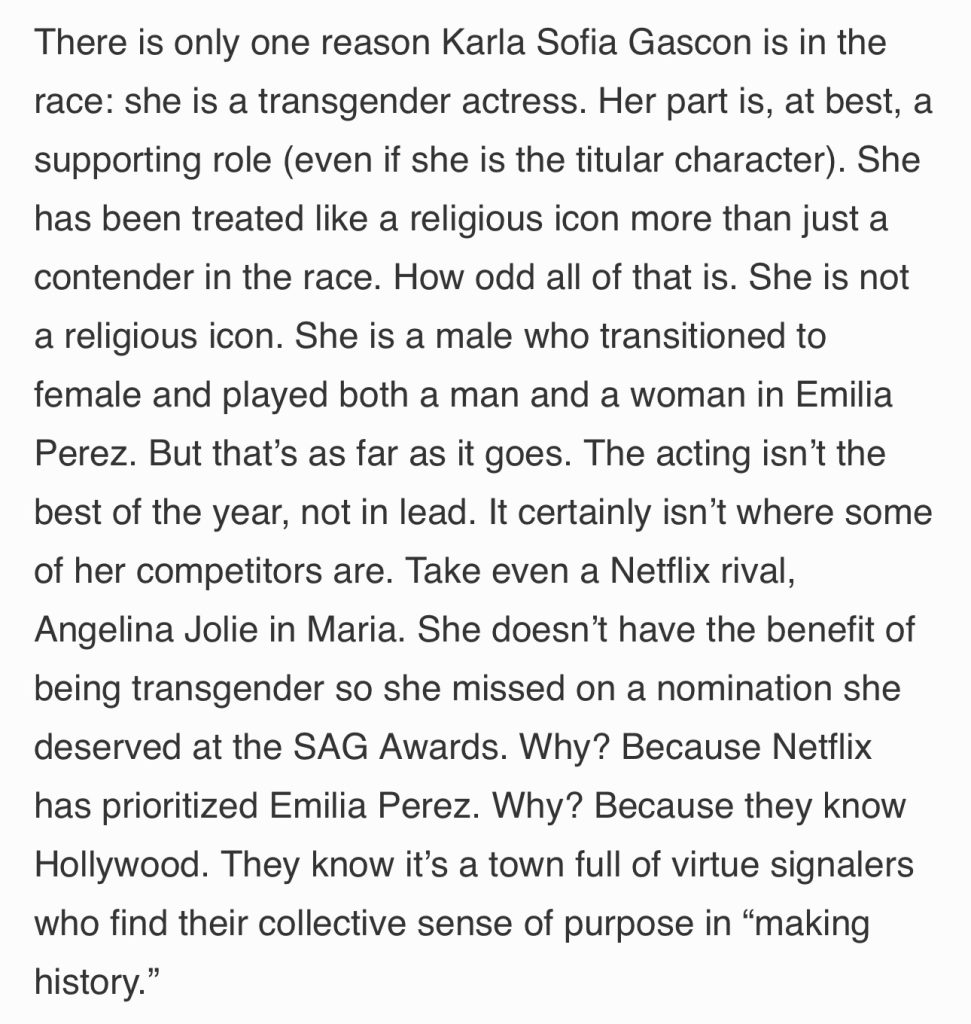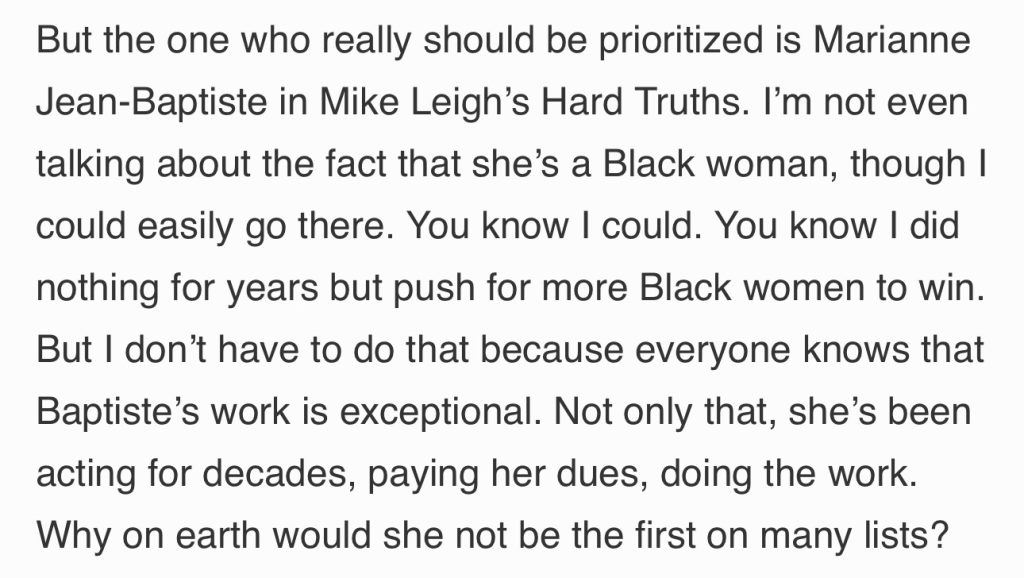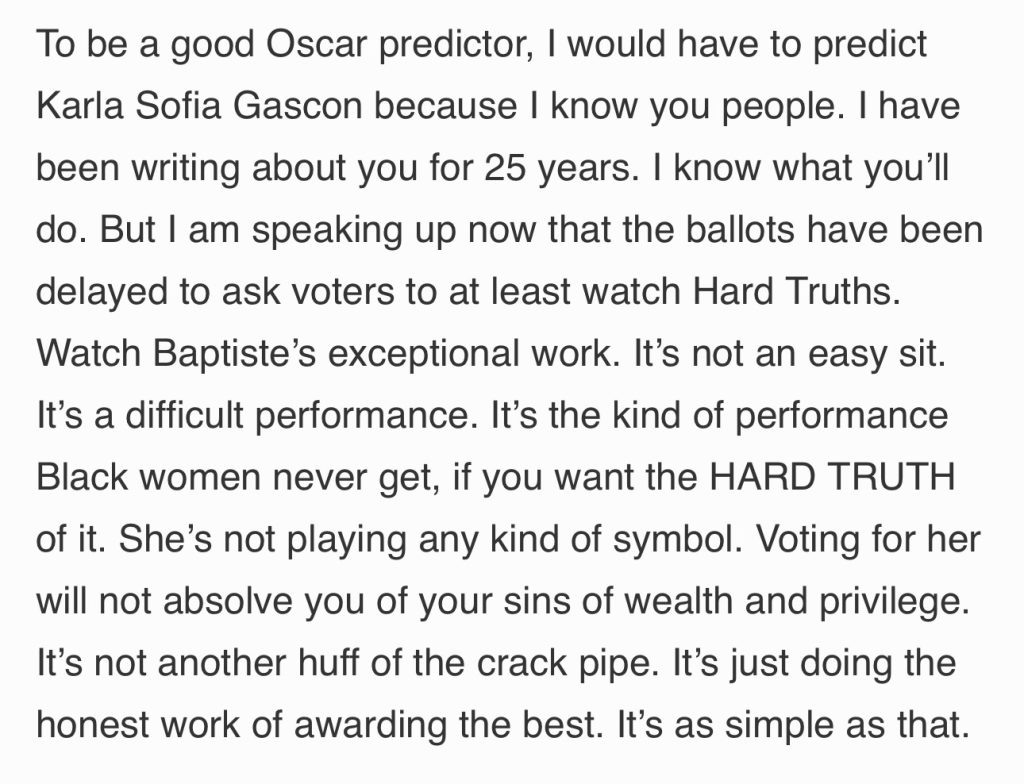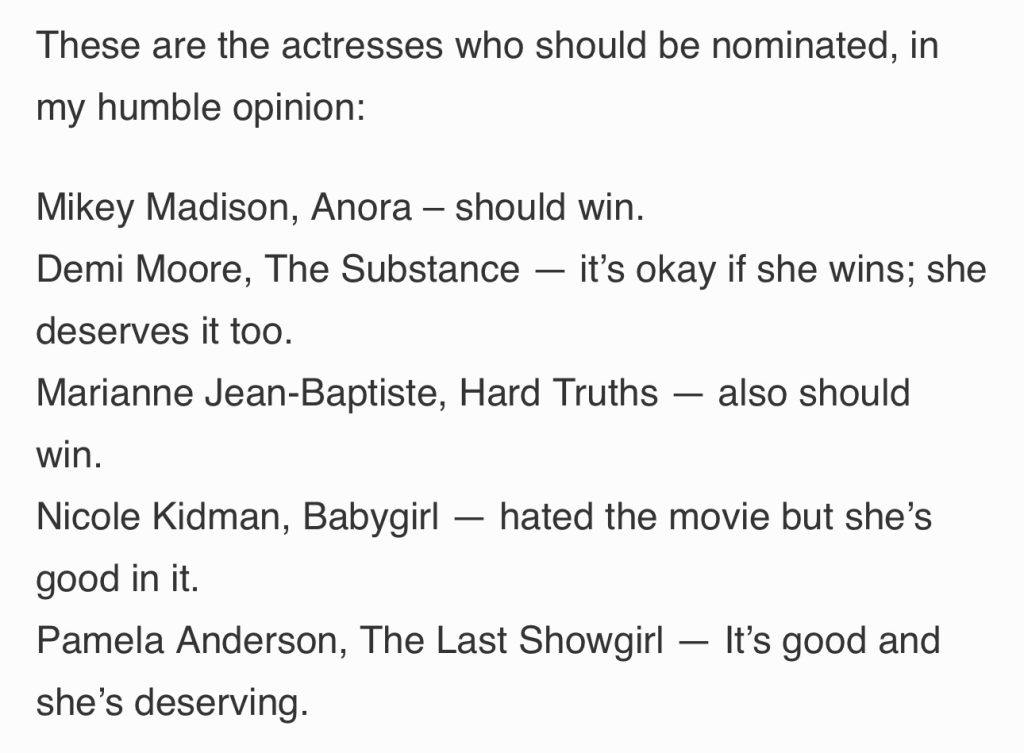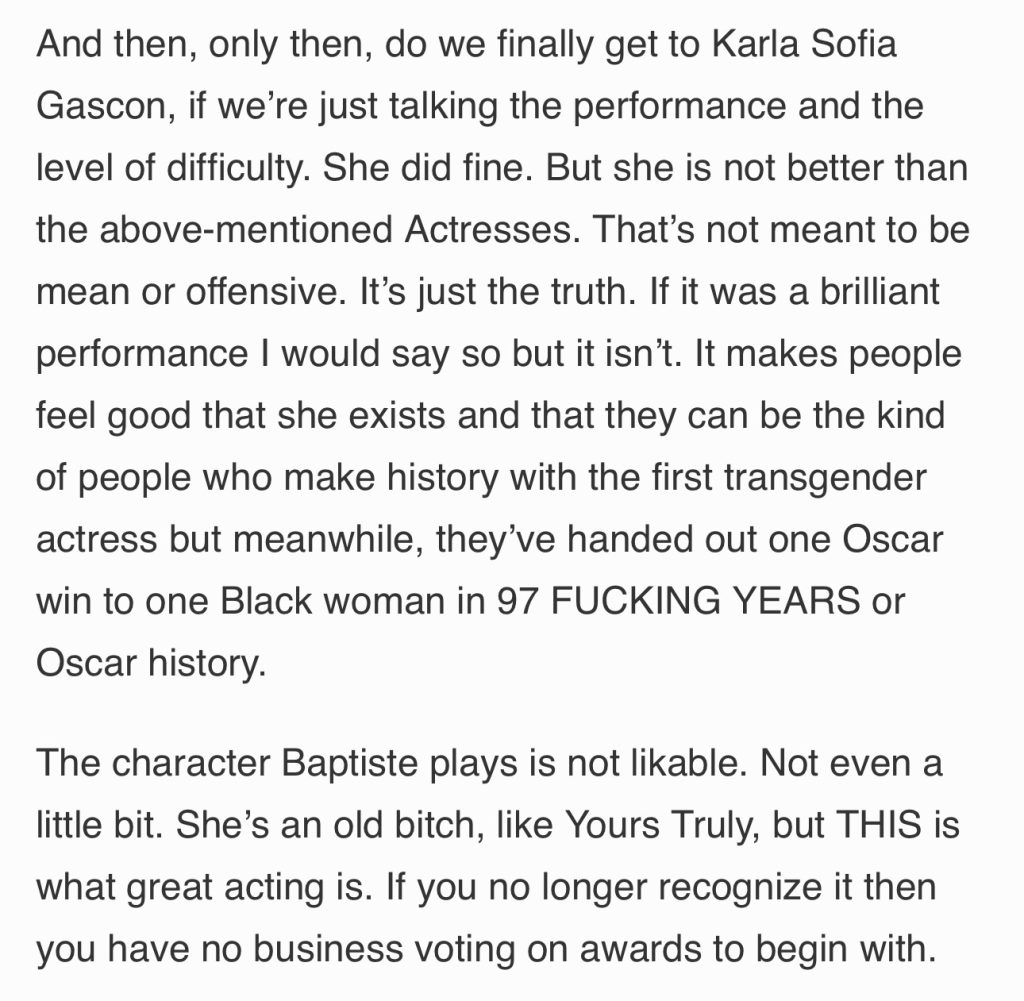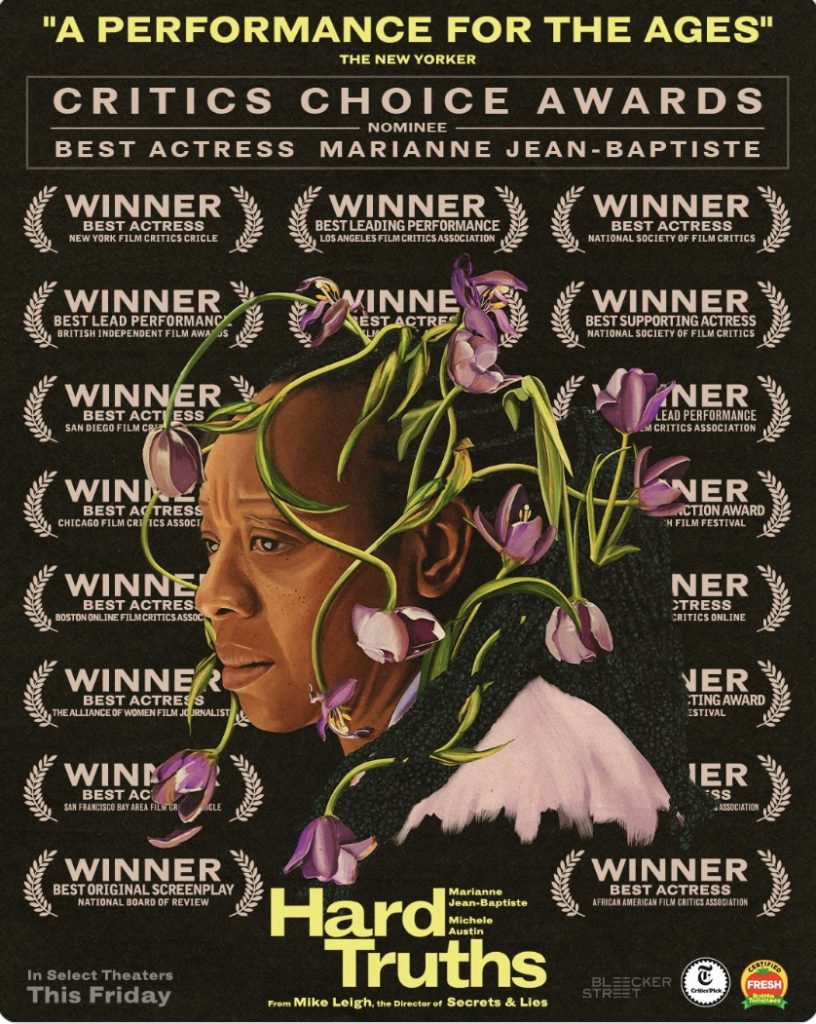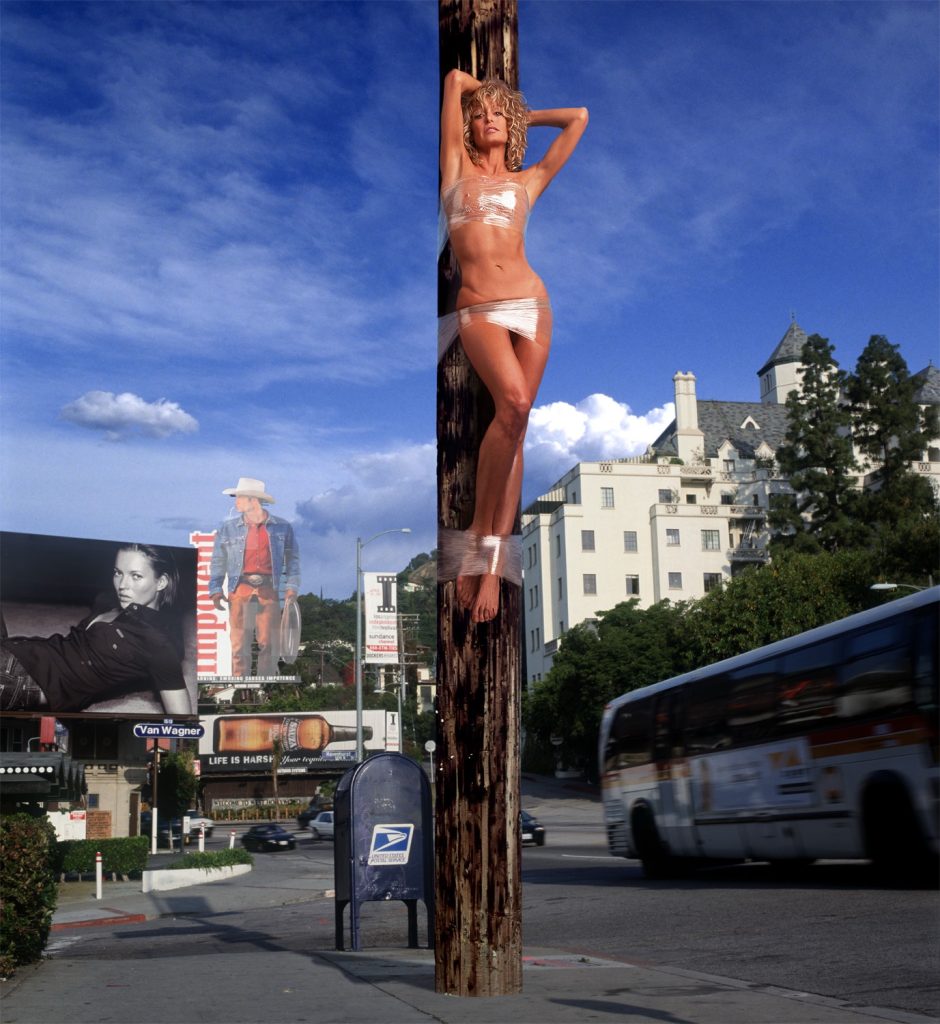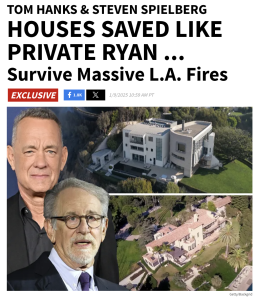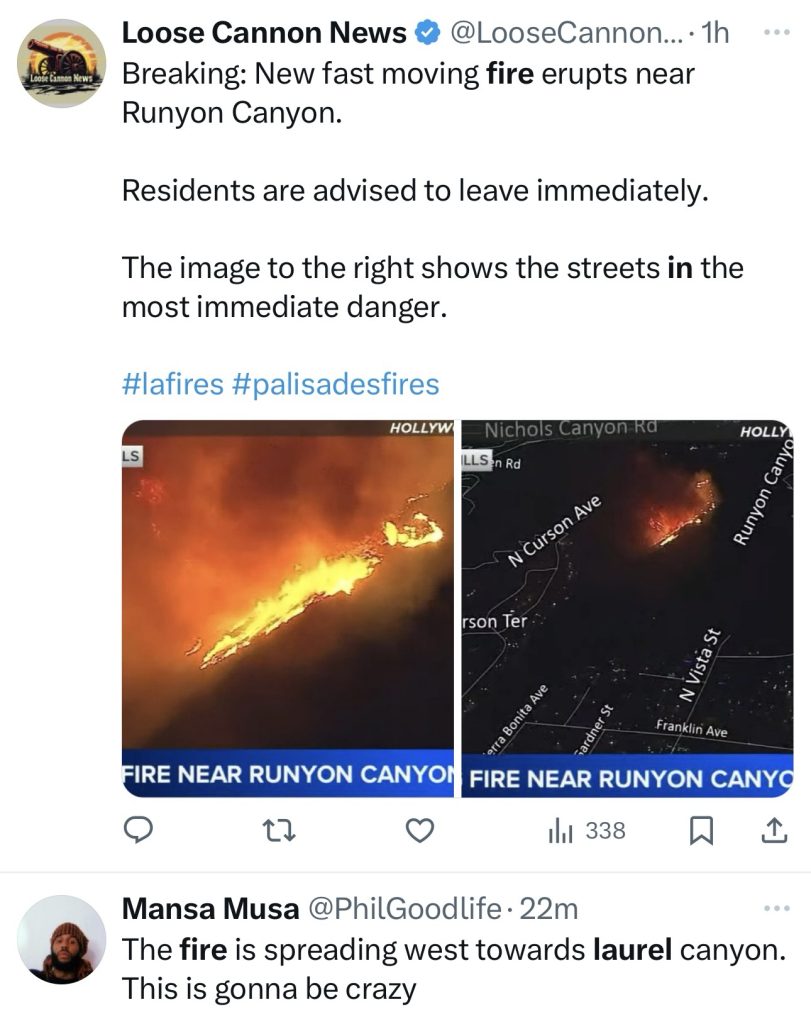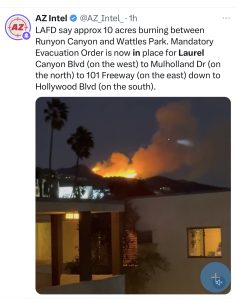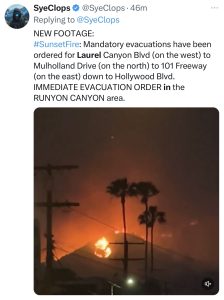“Easterners commonly complain that there is no ‘weather’ at all in Southern California, that the days and the seasons slip by relentlessly, numbingly bland. That is quite misleading.
“In fact the climate is characterized by infrequent but violent extremes: two periods of torrential subtropical rains which continue for weeks and wash out the hills and send subdivisions sliding toward the sea; about twenty scattered days a year of the Santa Ana, which, with its incendiary dryness, invariably means fire.
“At the first prediction of a Santa Ana, the Forest Service flies men and equipment from northern California into the southern forests, and the Los Angeles Fire Department cancels its ordinary non-firefighting routines.
“The Santa Ana caused Malibu to burn as it did in 1956, and Bel Air in 1961, and Santa Barbara in 1964. In the winter of 1966-67 eleven men were killed fighting a Santa Ana fire that spread through the San Gabriel Mountains.
“It is hard for people who have not lived in Los Angeles to realize how radically the Santa Ana figures in the local imagination. The city burning is Los Angeles’s deepest image of itself. Nathaniel West perceived that, in ‘The Day of the Locust’, and at the time of the 1965 Watts riots what struck the imagination most indelibly were the fires. For days one could drive the Harbor Freeway and see the city on fire, just as we had always known it would be in the end.
“Los Angeles weather is the weather of catastrophe, of apocalypse, and, just as the reliably long and bitter winters of New England determine the way life is lived there, so the violence and the unpredictability of the Santa Ana affect the entire quality of life in Los Angeles, accentuate its impermanence, its unreliability. The winds shows us how close to the edge we are.” — Joan Didion essay on the Santa Ana winds from “Slouching Toward Bethlehem”

